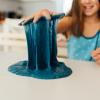This was my first reaction to the Pathways Daniel Siegel lecture at Town Hall last night: There are people here! Lots of them! And they’re taking notes and looking interested and seem happy to be here!
I’d just come off of two days attending Seeds of Compassion workshops, which were informative, enlightening, and dramatically under-attended.
But Dr. Daniel Siegel, associate clinical professor of psychiatry at UCLA and the author of some (very) popular parenting books - Parenting From the Inside Out and The Mindful Brain - can clearly draw a crowd.
His meta-message?
Parents, to be effective parents, need to understand themselves and their own past. “Some people think it’s about what happened in a parent’s childhood,” Siegel says. “It’s not. It’s how the parent makes sense of what happened.”
If you can do that - if you can come to terms with your own childhood; with relationships, traumatic events, rivalries and whatever else went on, your child will do well in life, he says.
Siegel reports that the latest neuroscience backs this up. Since the ‘90s, scientists have been able to look into real-life, living brains. That’s given the experts greater insight into the way the mind works, how the two hemispheres operate and the way memory functions, he explained.
He spoke about the importance of attachment and why forming strong physical and emotional bonds with parents or caretakers is critical to a child’s development. He explained how unresolved issues and episodes from our past can impact the way we relate to our children - and can make or break those relationships.
“You need to come to an understanding of your own past,” he says. “Make sense of your life in a deep way so you can repair moments of disconnection.”
When you’re able to do that for yourself, you can more easily make sense of life for your child, says Siegel. And that fosters resilience. “Children develop social and emotional intelligence this way, and that goes along with academic success.”
When a child sees that you are tuned into his or her internal life, Siegel points out, it’s a natural pathway toward compassion.
And as we’ve learned, that’s what it’s all about.











